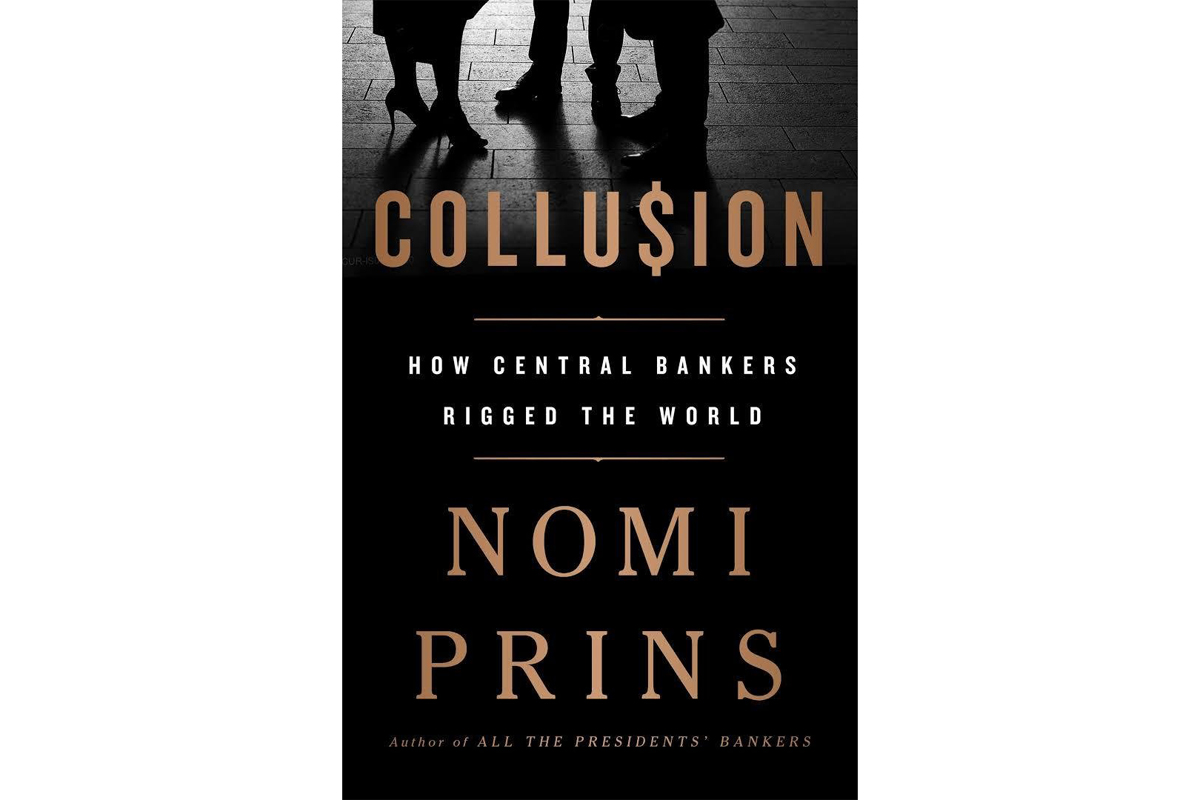Author Nomi Prins Releases ‘Collusion: How Central Bankers Rigged the World’
Former Wall Street Exec Warns Lessons of 2008 Haven’t Been Learned

Nomi Prins, the prolific and astute chronicler of banking and finance, returns to print in May 2018 with Collusion: How Central Bankers Rigged the World, a meticulously researched account of how central bankers from the world’s major economies responded in the aftermath of the global financial crisis spawned by the reckless behavior of major U.S. banks. Prins, a former Wall Street executive, shines a klieg light on the policy machinations and individuals that typically operate in the shadow of representative bodies.
With a forensic eye, Prins explains how central bankers in Mexico, Brazil, Japan, Europe, and, with some strategic reluctance, China, followed the lead of the U.S. Federal Reserve and conjured money out of thin air in order to provide liquidity and stimulus for the benefit of banks and capital markets. Prins writes, “The 2007-2008 financial crisis that ravaged the global economy was ignited by a rapacious banking system in the United States. In response, herded by the Fed, the central banks of the G7 nations careened down an endless money-manufacturing trail — in broad daylight.”
Unconventional monetary policies such as zero-interest rates, “quantitative easing” — the purchase by central banks of government bonds or other securities — and other extraordinary actions undertaken by central bankers were designed to prop up banks and markets, not the everyday economy of Main Street. While banks gorged themselves on an endless supply of cheap money, the citizens of Greece, Ireland, Portugal, and Spain endured austerity, high unemployment, and the loss of public pensions. In the U.S., millions of people lost their homes, jobs, or retirement funds. While the recovery on Wall Street was celebrated by politicians and the media, the cheap money lavished on banks didn’t trickle down to the real economy or fund productive investments in infrastructure, a fact Prins illustrates with relentless clarity.
Why do the policies pursued by central bankers over the last decade matter? Because the global economy is fragile and could easily collapse again, with consequences worse than 2008. As Prins writes, “The world economy remains imperiled, an opportunistic game to the central banks, a field day for speculators, a hazard for populations.” Collusion is a warning that the lessons of 2008 haven’t been learned.



